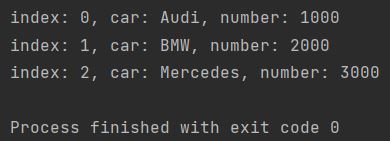Following is the help on how to enumerate dictionary in Python. Enumerating a dictionary in Python provides a way to iterate through its key-value pairs while also keeping track of the index or position of each item in the iteration. This is particularly useful when you need to access both the content (key-value pairs) and the order of items as you process them, even though dictionaries themselves are inherently unordered in Python versions before 3.7 (and ordered by insertion order in Python 3.7+).

Consider the following Python dictionary as an example:
my_dictionary = {'Audi' : 1000, 'BMW' : 2000, 'Mercedes' : 3000}
It’s important to note that while .items() provides key-value pairs, the order in which these pairs are presented was arbitrary in Python versions prior to 3.7. In Python 3.7 and later, dictionaries maintain insertion order, so enumeration will reflect the order in which items were originally added to the dictionary.
Step-by-Step Dictionary Enumeration in Python
The following Python code demonstrates how to enumerate a dictionary:
my_dictionary = {'Audi' : 1000, 'BMW' : 2000, 'Mercedes' : 3000}
for i, (car, number) in enumerate(my_dictionary.items()):
print("index: {}, car: {}, number: {}".format(i, car, number))
In the provided code snippet, the enumerate() function is employed to generate an index (i) for each iteration and simultaneously unpack the key-value pairs (assigned to variables car and number) obtained from my_dictionary.items(). We then print the index, car brand, and the corresponding number for each item in the dictionary.

By enumerating the dictionary, you can efficiently access and process its key-value pairs, making it a valuable tool for various data manipulation and analysis tasks in Python.
